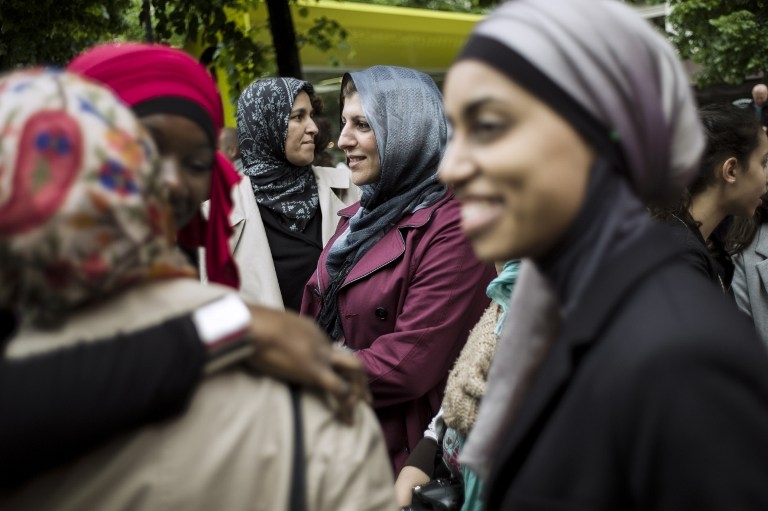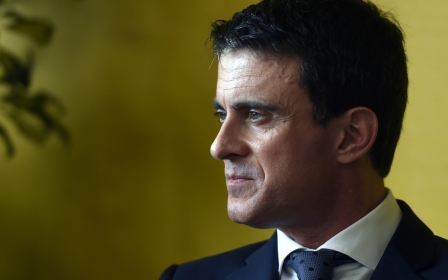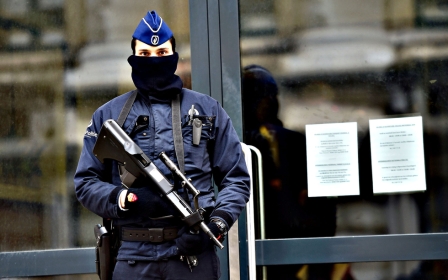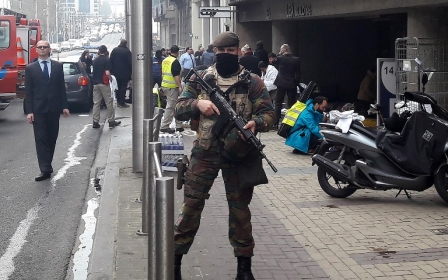French PM accused of stoking 'climate of fear' with calls for headscarf ban

French Prime Minister Manuel Valls has drawn criticism from students, senators and members of his own government this week after suggesting in an interview that Islamic headscarf in universities should be banned.
Students at the Paris 8 University accused Valls of deliberately seeking to stoke anti-Muslim tensions and using the headscarf debate as a "smokescreen" to distract from concerns about jobs, education and the economy.
Valls made the remarks about the headscarf, which is banned in French public schools, in an interview with the Liberation newspaper in which he also said that the majority of French people believed that Islam was incompatible with the country's secular values.
“This should be done," Valls said of a headscarf ban at universities. "However there’re some constitutional rules that stand in the way. Hence, we have to ensure that universities are religion-free spaces and stay that way."
But Thierry Mandon, the minister for higher education in Valls' government, immediately rejected the suggested ban.
“There is no need for a law,” Mandon told RTL radio. “Based on what I see when I’m in the field and what all universities’ chairs are telling me, there’s no problem involving the Islamic veil, so there’s no need to create one.”
Headscarves have been banned in public schools since the the introduction of a law 12 years ago prohibiting the wearing by students of "any ostentatious religious signs" including jewellery and garments.
Suggestions that headscarf should also be banned in universities have been rejected in the past.
In May 2015, the National Committee for University Education and Research (CNESER) said that “prohibiting students in universities from wearing any signs of religious belief has no legal grounds, and brought to light the fundamental principle of the independence of universities regarding any political, economical or religious influence”.
Last December, the Centre for Secularism - which reports directly to the prime minister and whose purpose is to support “the government in any action to preserve the separation of church and state in France” – ruled that passing legislation to ban headscarves in universities would threaten their independence.
The organisation pointed out that “the vast majority of the people interviewed were clearly against that possible legislation, based on the principle of independence of universities and the fact that going through with such legislation would obviously clash with the values conveyed by that principle”.
At the Paris 8 University, located in the suburb of Saint-Denis, where a majority of people come from North African or Sub-Saharan African backgrounds, student reaction to Vall's comments ranged from indifference to scorn.
In Saint-Denis, the hot topic is the “El-Khomry bill” – named after Myriam El-Khomry, the minister of labour - that supposedly will improve competitiveness and result in creating jobs. The bill has encountered hostility in some French universities, including at Paris 8.
On Thursday morning, some students protesting the law tried to block the main entrance of the university. A shopping trolley and tyres were set up at the entrance. Students who took part in the protest accused security guards of using violence against them.
Elise, a 22-year-old sociology student, expressed shock as she told her story to Middle East Eye: “A dozen security guards insulted and beat us up. They pushed us against a large glass window that shattered from the pressure. One of the student’s hands was injured.”
Asked about debate over Islamic headscarves, she said: “That’s a smoke screen. Whenever they want to pass a bill that is clearly anti-social, they bring back that veil debate. That debate does not bother us. What worries us is our future, the quality of our education, the lack of funding. This bill weighs on us when we are not even on the job market yet. We couldn’t care less about the veil.”
Pierrot, a 23-year-old journalism student, agreed: “This is so typical of politicians. It diverts attention from real issues. Prohibiting the Islamic veil in uni would be discriminatory and racist anyway.”
A Muslim student who wears a headscarf, Fatou, told MEE: “Lump it all together in one pot. This is what is happening after the last terrorist attacks. If I wear the veil, it’s because I want to. Neither my mother nor my sisters wear it. Manuel Valls is using the current climate of fear in France. I’ve never had any issue here at uni.”
Warda, a 25-year-old English student, said that prohibiting the headscarf would force some students to drop out of university.
“If they prohibit students from wearing the veil, I will have to drop out of uni. And I do believe that even more girls won’t even go to uni in the future if they have to choose between their academic career and their veil," she said.
Esther Benbassa, a Green Party senator, told MEE that she believed Valls was seeking to stir up debate about the headscarf in order to distract from his own poor popularity ratings, which currently stands at just 27 percent.
“Valls is not popular so he is trying to get extreme rightwing votes. There’s a shift going on even though the government is not racist. Given the current climate of Islamophobia, I don’t think that it’s a smart move to make, leading this anti-Islam wave,” said Benbassa.
Middle East Eye propose une couverture et une analyse indépendantes et incomparables du Moyen-Orient, de l’Afrique du Nord et d’autres régions du monde. Pour en savoir plus sur la reprise de ce contenu et les frais qui s’appliquent, veuillez remplir ce formulaire [en anglais]. Pour en savoir plus sur MEE, cliquez ici [en anglais].




